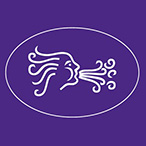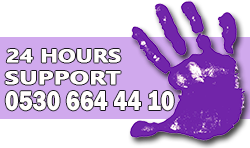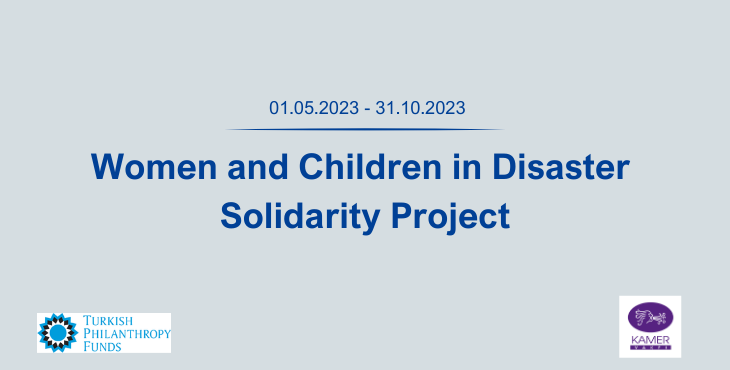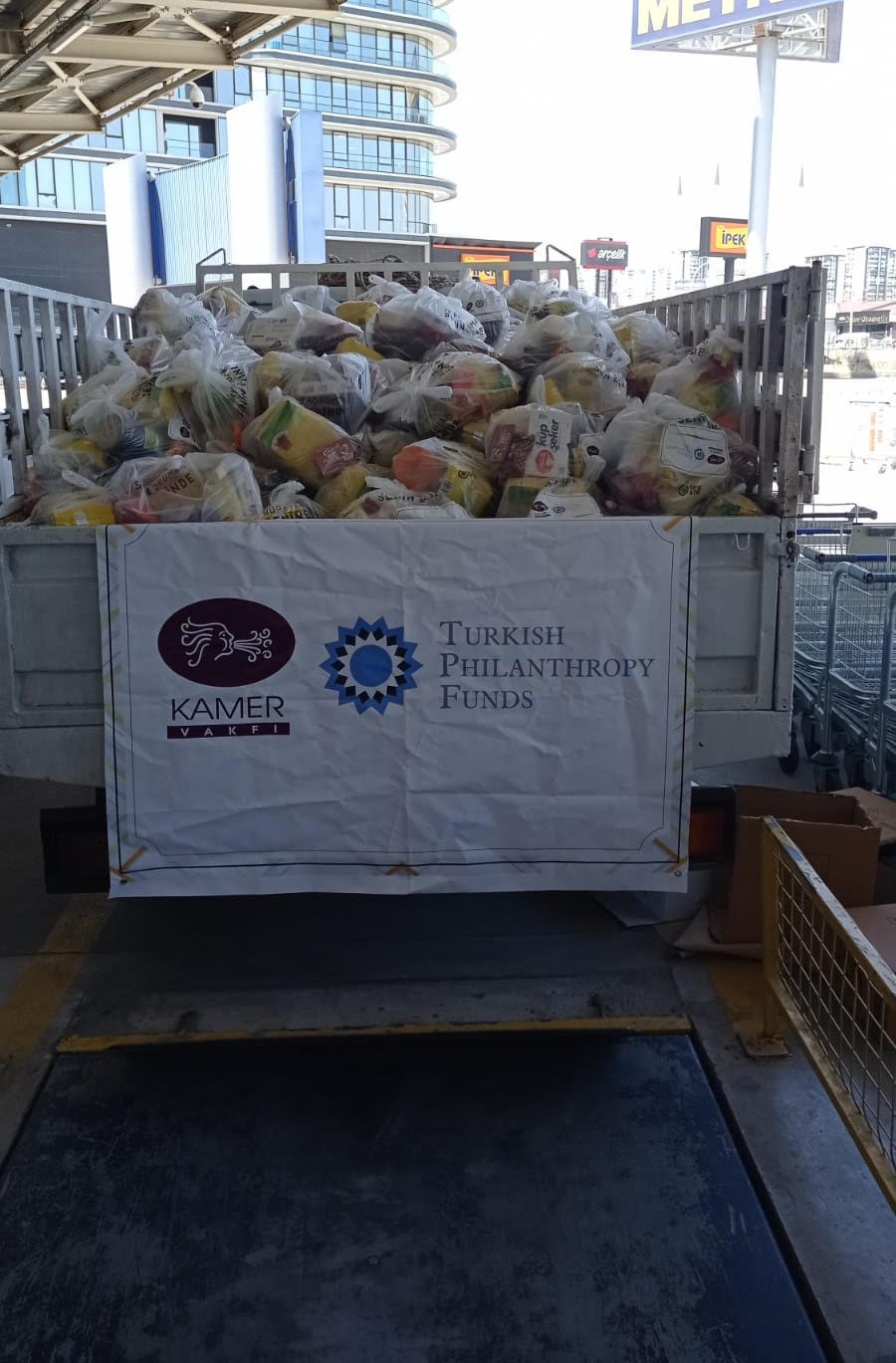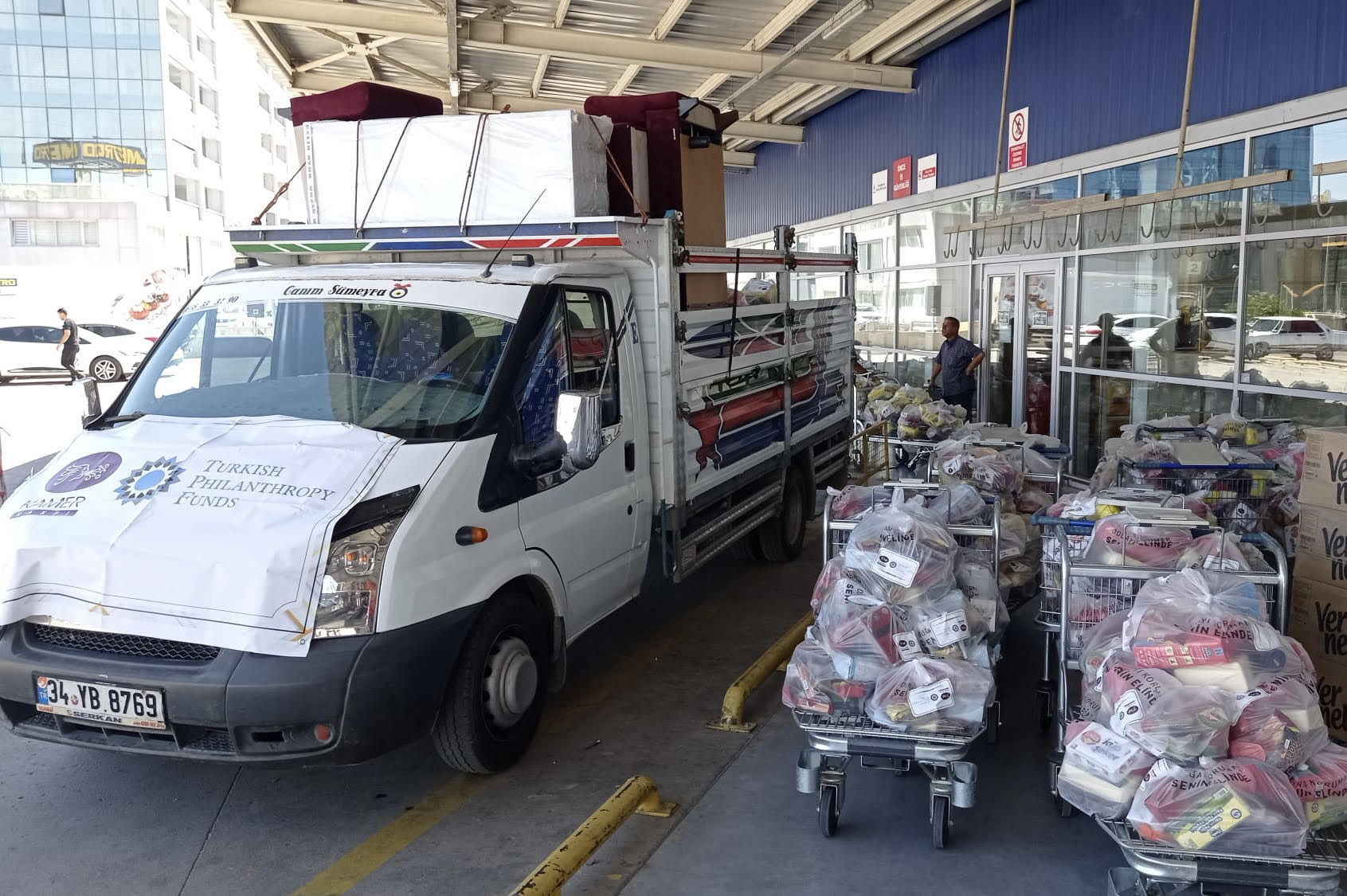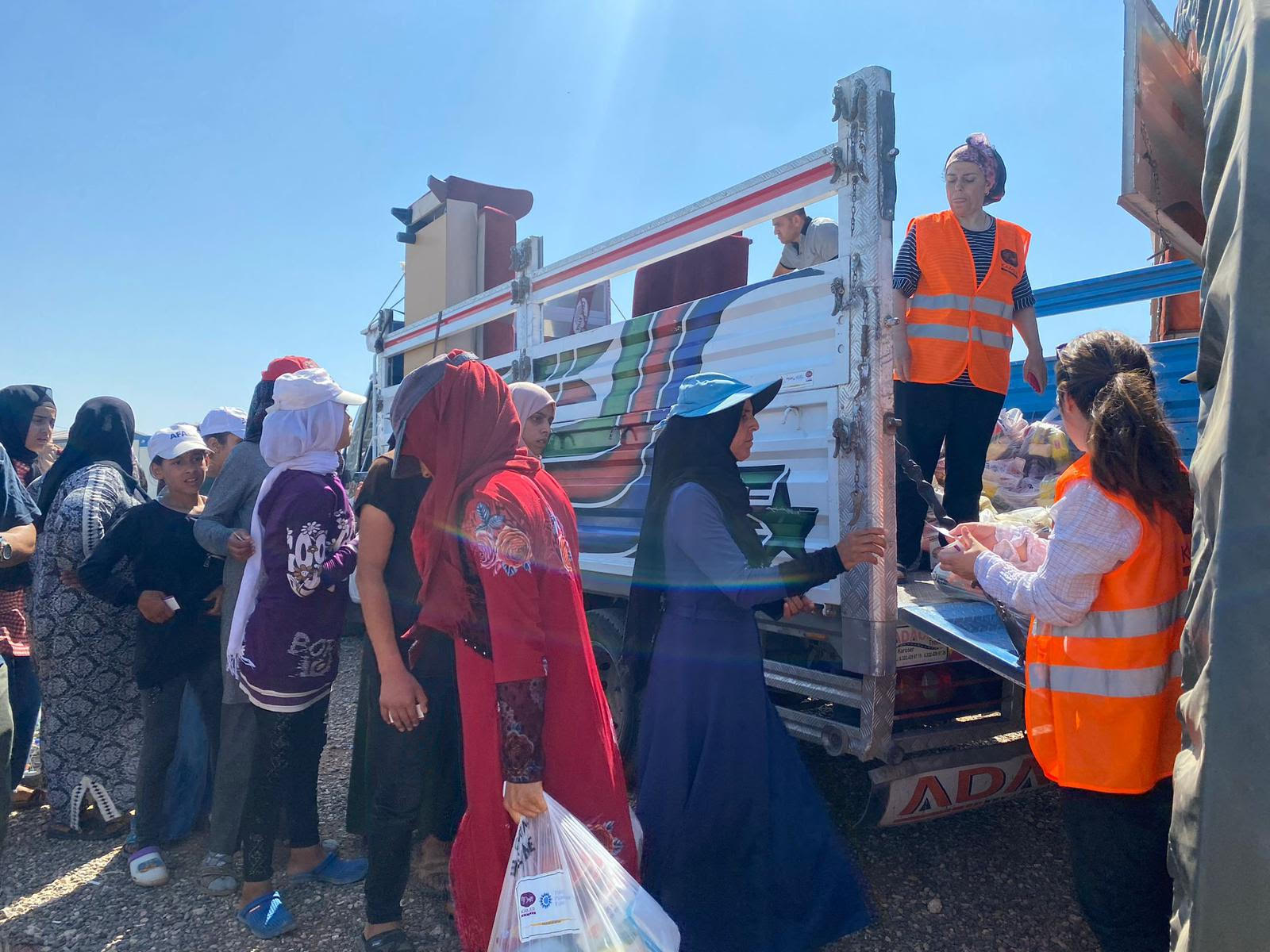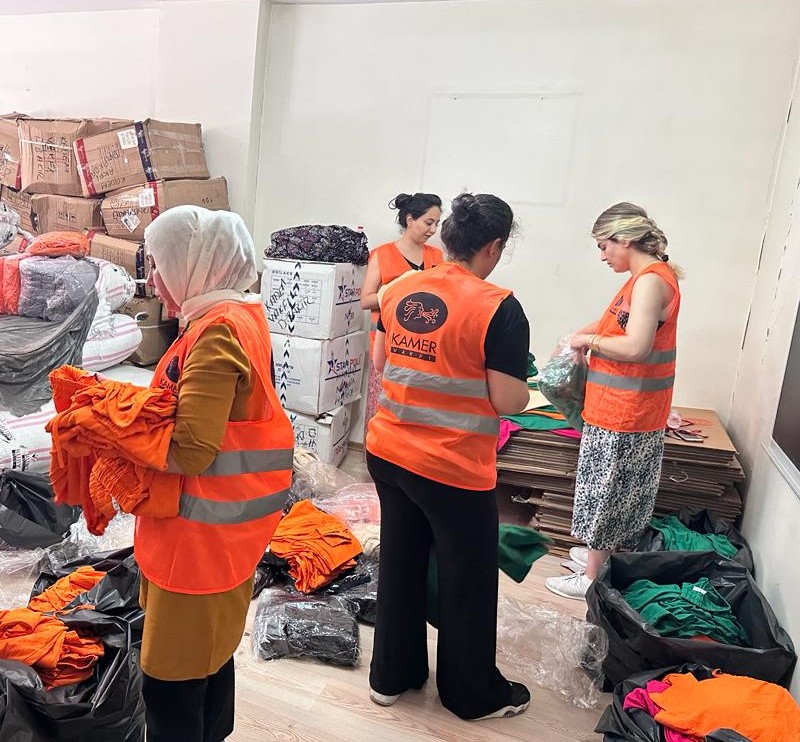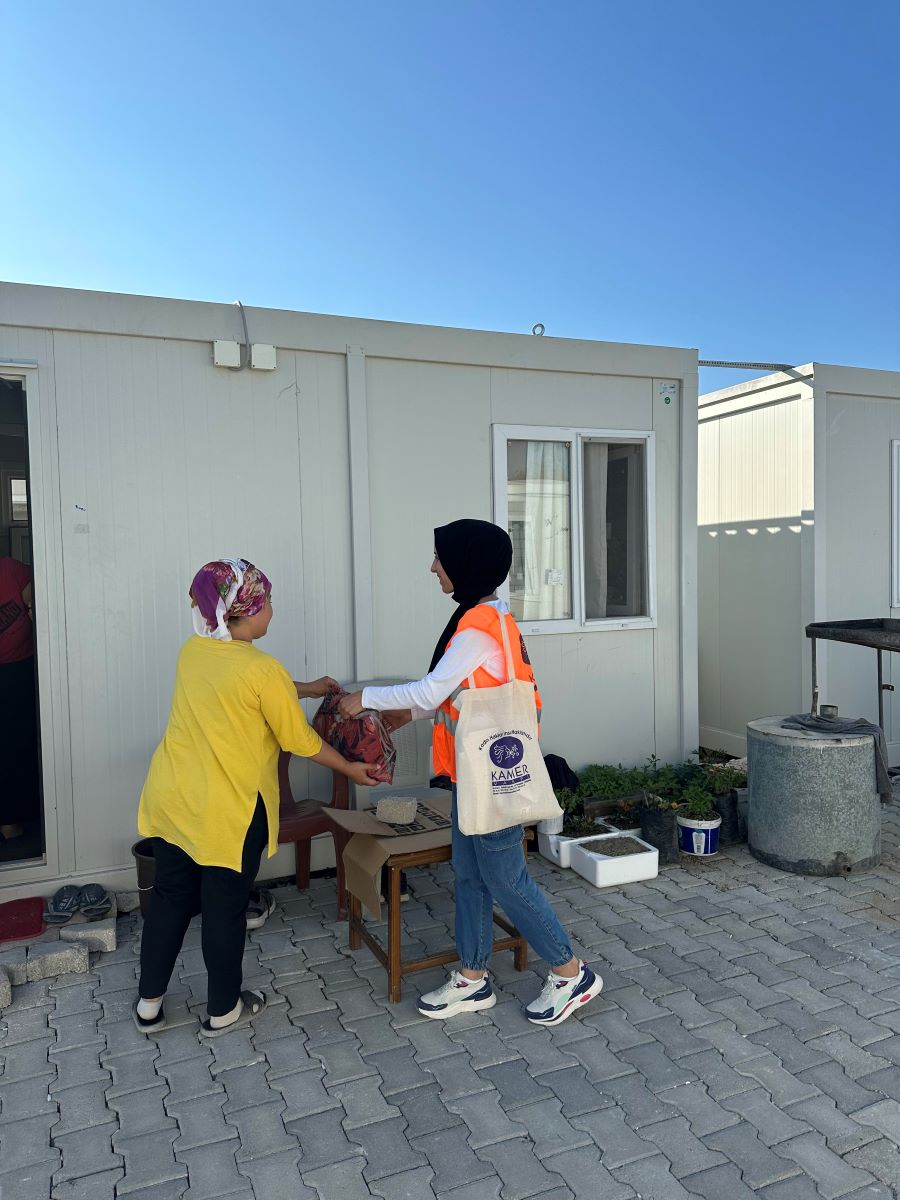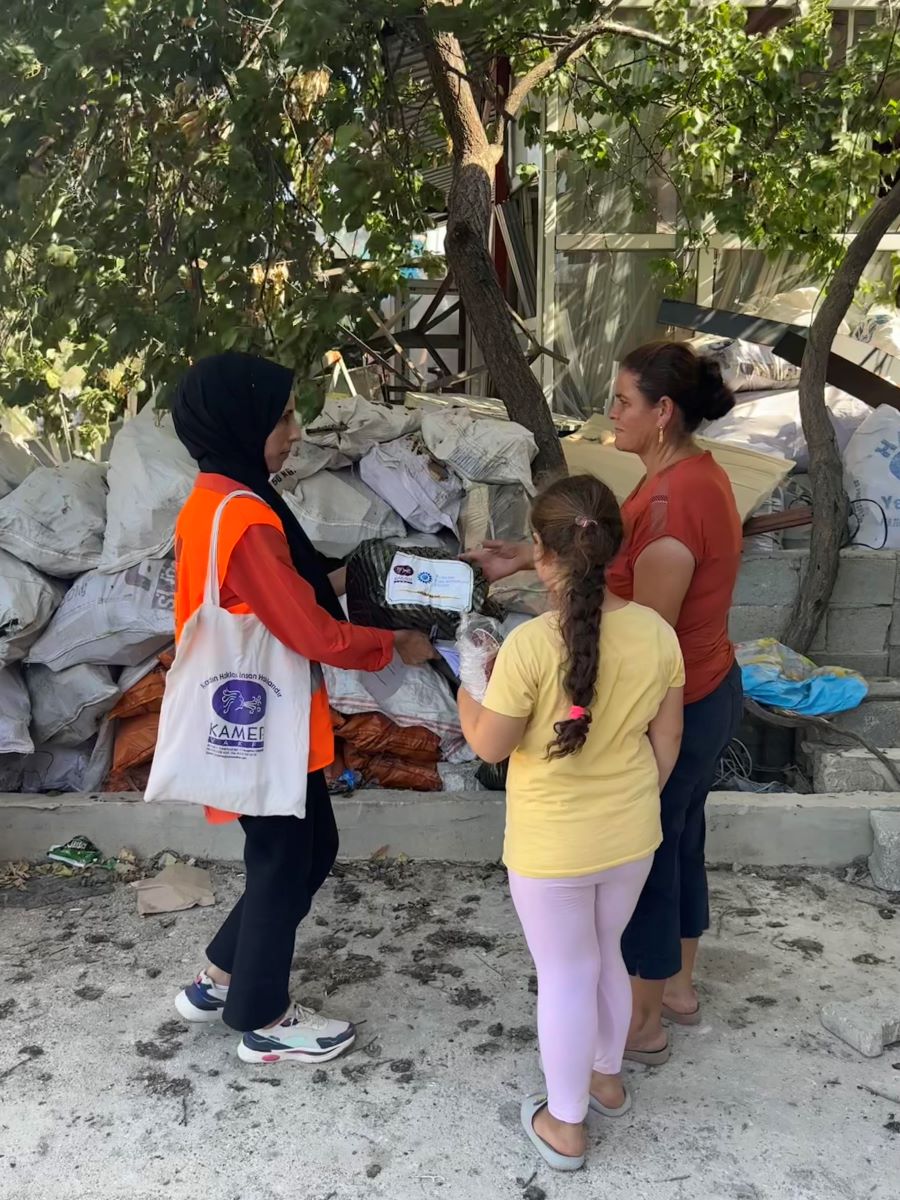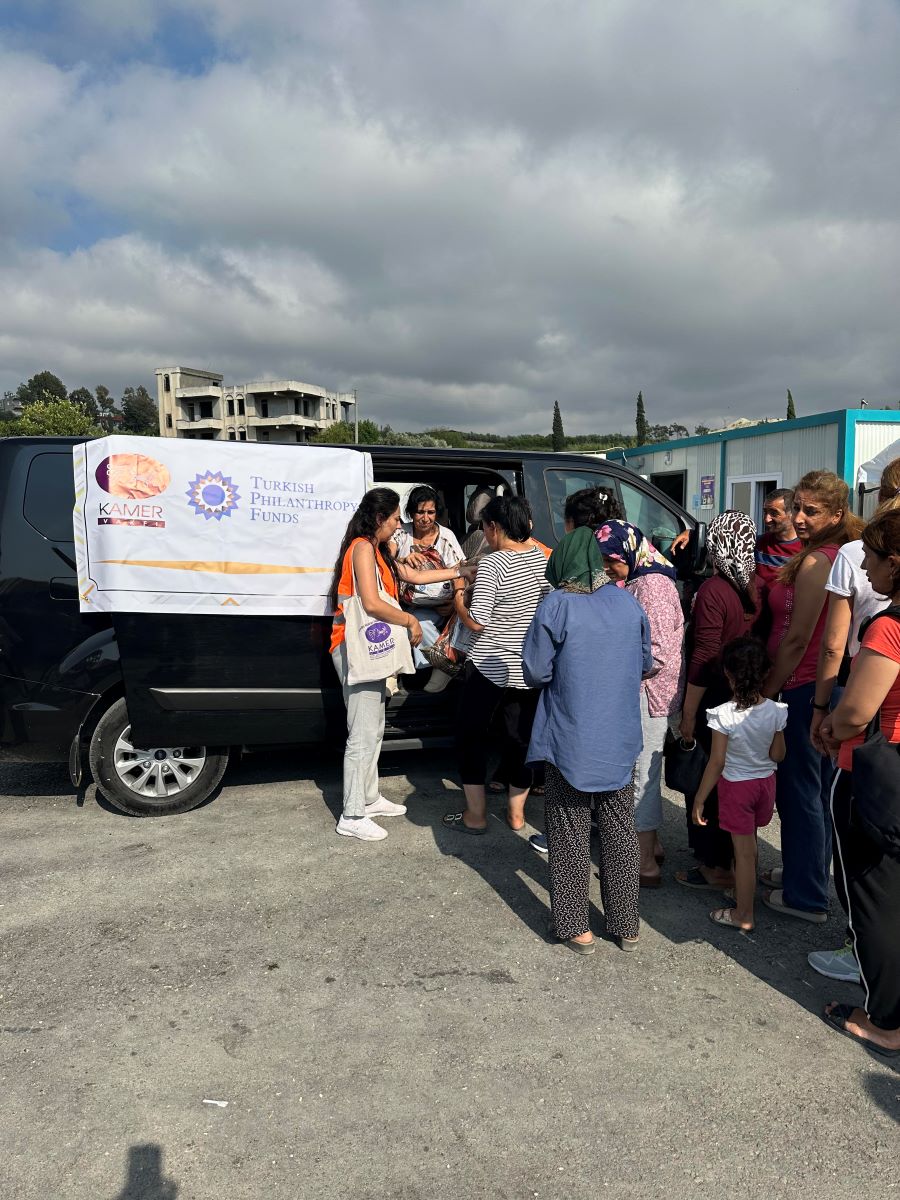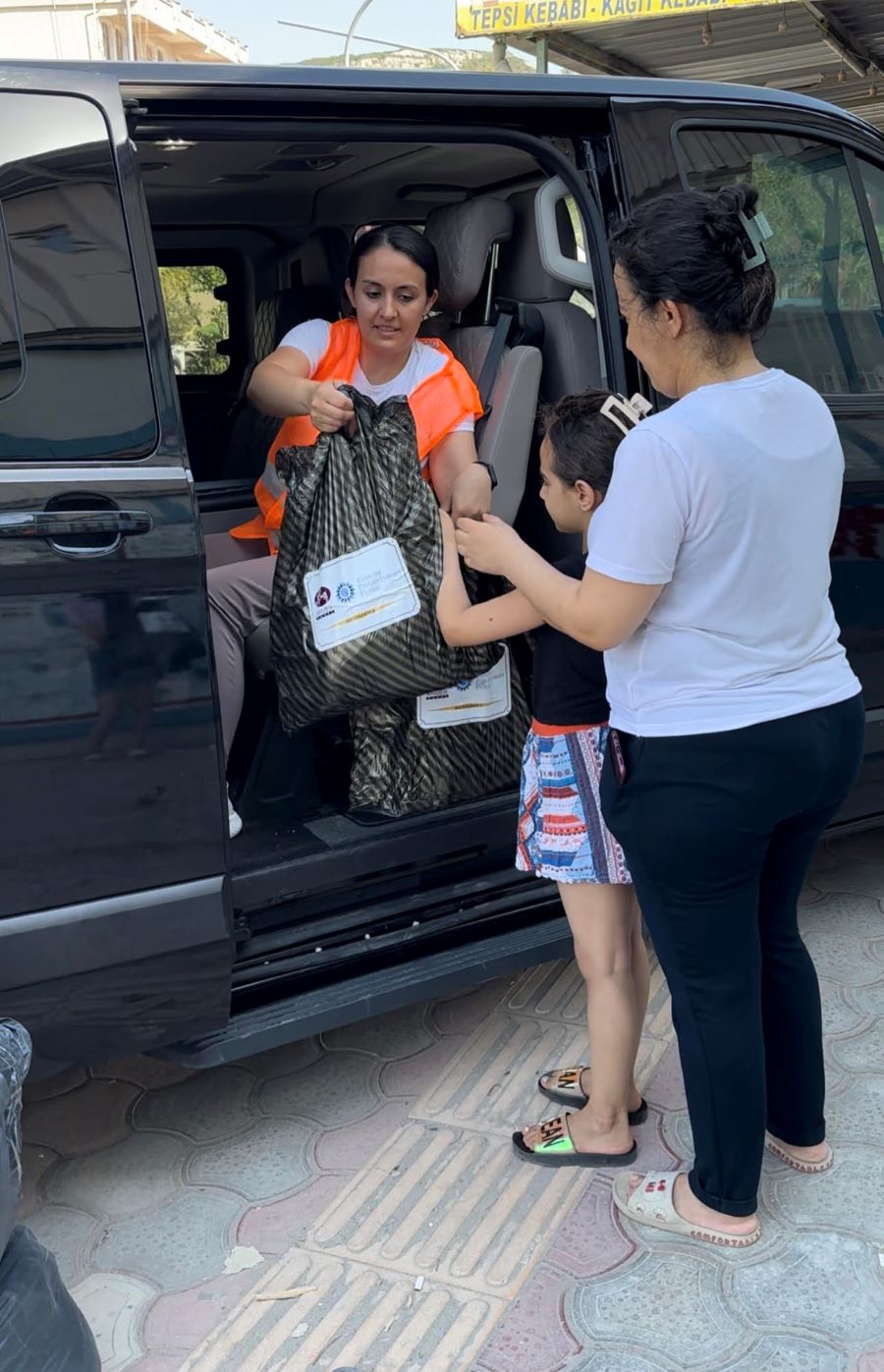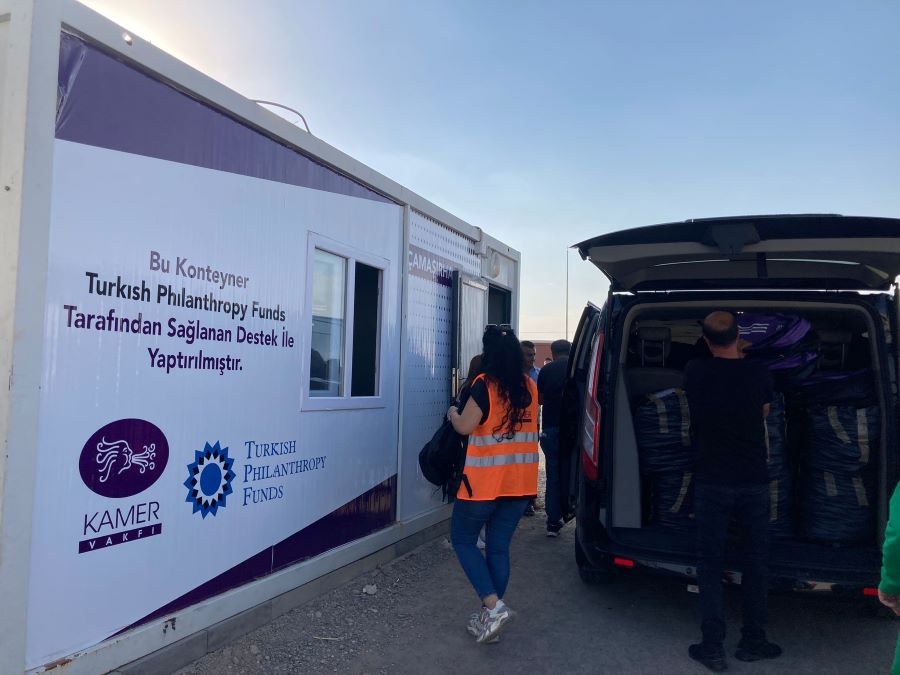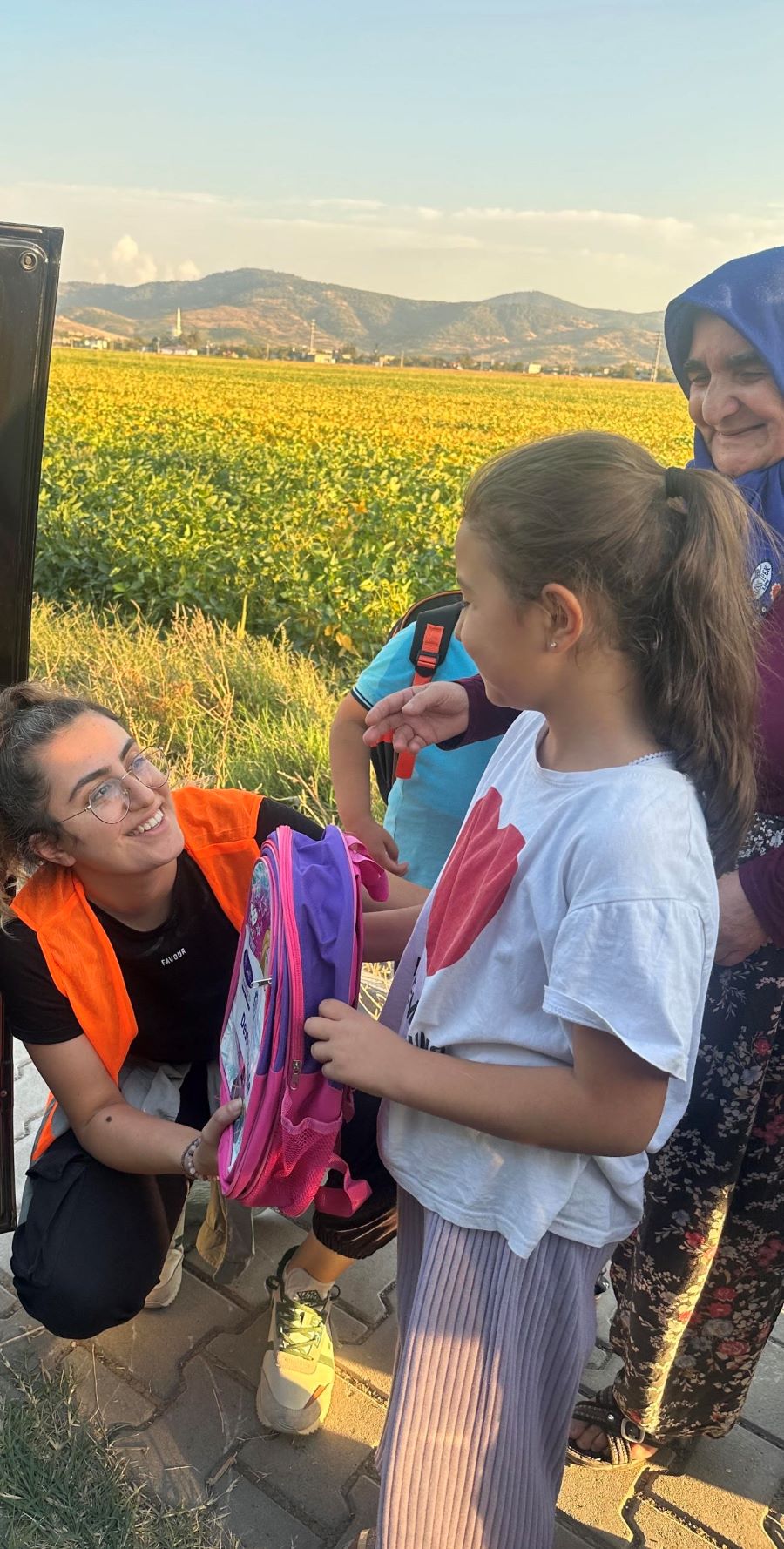Solidarity with Women and Children in Disaster;
The Cansuyu Project was carried out with the first support provided by TPF. The implementation and reporting of the Cansuyu Project was completed.
The second support provided by TPF was for the Solidarity with Women and Children in Disaster. The Project for Solidarity with Women and Children in Disaster was prepared by updating the needs. However, the prioritized needs of the disaster victims continued to change due to reasons such as the facilities provided by the Administration, private companies, seasonal changes and some unexpected developments.
KAMER used the second support provided by TPF in the most efficient way, taking into account the needs.
The activities carried out within the scope of the Solidarity with Women and Children Disaster Victims Project are listed below.
.
1. Support Materials
-Food support was provided.
The demand for food was not as much as envisaged during the preparation of the project. As the weather warmed up, disaster victims went to their gardens, vineyards and fields. The provinces declared as Disaster Areas were the provinces that could both grow their own vegetables and fruits and sell their products to the Turkish market. They tried to take care of their gardens and vineyards in the summer months, although not as much as before. They tried to feed themselves with the products they grew during the summer months and helped other disaster victims to access food more easily. KAMER was mostly asked for cheese, olives, tea, sugar and sometimes dry food.
As the weather started to warm up, the biggest need was for drinking water. Especially in the districts of Hatay such as Defne, Antakya, Samandağ and Kumlu where there are no natural water sources, drinking water was supplied from outside during the summer. Since the renewal of water networks will take a long time, it is expected that the need for drinking water will continue for a long time.
Various aid organizations, soup kitchens and the Red Crescent were providing three meals a day from the very beginning in the tents and containers that were officially set up during the winter months.
KAMER and similar NGOs were providing food support to disaster victims who set up tents on the streets because they could not find a place in official shelters. Because they do not receive any support.
In recent months, nutrition has also become a problem in official shelters. This is because aid organizations distributing food have gradually left the disaster area. The Red Crescent has reduced the number of meals distributed. It is anticipated that the demand for food will increase again in the winter months.
Within the scope of the project, KAMER provided food aid to 135,078 people, starting with groups that had difficulty in accessing support.
-Summer clothing and hygiene items were distributed to women and girls.
The earthquake had struck on February 6 and the Cansuyu Project had provided women and children with winter clothes. As the weather started to warm up, disaster victims started to need summer clothes and shoes. With the funds provided by the Solidarity with Disaster Victim Women and Children Project, 7,000 women and 3,000 children were provided with summer clothes, shoes and slippers that could be worn outside.
2. Permanent Units Established
Units were established in Maraş, Adıyaman and Hatay to serve women and girls, women, children and men who were previously disabled or became disabled during the disaster.
Adıyaman
The first shower room and laundry unit in the disaster area, especially in Adıyaman, was established immediately after the disaster with the first support provided by TPF (Cansuyu Project). After the positive impact of this unit, many more shower rooms and laundry facilities were established.
In the intervening months, tent cities were dismantled. Disaster victims were moved to containers. Once the tent cities were dismantled, all NGOs, including KAMER, started to set up their own compounds to provide services to their target groups.
KAMER established a compound to protect women and girls from discrimination, violence, sexual exploitation and abuse. The compound was completed with various donations and a Multi-Purpose Meeting Hall was built with the support of TPF. Some expenditures were also made for the infrastructure of the compound. A shower room and two washing machines were installed in all containers set up in the compound for the use of disaster-stricken women and children in emergencies.
With the support of UNFPA and various donations received by KAMER, 11 people, including 2 psychologists, 2 social workers, 2 nurses and 5 health mediators, are working full time in this compound. Information on the activities carried out in the settlements will be provided at the bottom of this section.
Settlement address: Türkiye Petrolleri 3134. Sok. 16/1 Adıyaman/Center,
Maraş
Immediately after the February 6 earthquake and the disaster that followed, KAMER started working rapidly in Maraş. For initial and emergency support, the support provided by TPF for the Cansuyu Project was utilized. KAMER's activities on the streets and in tents for months were appreciated by public officials in Maraş.
In the summer months, all tents in Maraş were removed and disaster victims were relocated to container cities. As in other provinces, NGOs were asked to set up their own compounds. While KAMER was looking for a place for a compound in Maraş, they received an invitation from the district governor's office, which is the administrator of the largest container city.
It was stated that KAMER would be given a place to settle in a container city with 7,000 containers and that electricity and water connections would be provided. KAMER accepted this offer when the district governorate stated that the women and children living in the container city needed support.
The laundry and shower facilities previously built with the support of TPF were moved to the container city in question. In addition, two multi-purpose halls where meetings can be held, a room where women can apply for violence and receive psychological counseling, and a nurse's room to support pregnant women were built. UNFPA finances the team of 6 people working at this location, including 1 psychologist, 1 social worker, 1 nurse, 2 health mediators and 1 reporting officer.
Campus Address: Necip Fazıl Container City next to Necip Fazıl City Hospital Gaziantep Road 12th Km Karacasu Kırım Mahallesi Dulkadiroğlu/Kahramanmaraş
Hatay
After the February 6 earthquake, tens of thousands of people died and perhaps hundreds of thousands of disaster victims became disabled. While the most urgent and important needs of the disaster victims have not yet been met, many disabled people with severed arms and legs are desperately seeking support to meet their daily needs, receive psychological support and treatment.
During the fieldwork in Hatay, it was observed that many women who had disabilities before the disaster and became disabled due to the disaster had difficulties even in meeting their daily urgent and humanitarian needs. Many of these people with disabilities who had difficulty in finding support were members of groups that were already experiencing multidimensional poverty before the disaster. They were already very poor, experiencing miscommunication due to language (they did not speak Turkish), and unequal access to resources.
While KAMER was evaluating these impressions, an association called Hatay Disabled Rights Association was established. The founder of the association was a group of disabled people who already had disabilities and had experience working on disability. With the resources they provided, they took action to establish a campus in Antakya. A plot of land was rented, and with the support of various NGOs, they started to create spaces for the disabled.
KAMER built a multi-purpose container hall for the Hatay Association for the Rights of Persons with Disabilities. With the cooperation that will continue, KAMER will contribute to the support activities for women and girls with disabilities in Hatay.
The following activities are planned to be carried out in the compound established by the Hatay Association for the Rights of Persons with Disabilities.
-All kinds of counseling and support for women and men with disabilities
-Providing psychological counseling to people with disabilities
-Physiotherapy support
Organizing awareness-raising meetings
-Shower facilities and laundry facilities for the disabled
Campus Address: Necmiddin Görür Cd 49-85 Hatay
Malatya
One campus was built in Malatya city center and one in Doğanşehir district with donations outside TPF.
Expenditures were made for the electricity and water connections of the two campuses established with TPF support.
Campus addresses: Bulgurlu Mah. Kızıltepe Square Tekno Container Park 3/5 Battalgazi/Malatya
Support Provided to Women Disaster Victims in KAMER Offices and Campuses
KAMER works in 21 provinces, including 8 provinces in the Disaster Zone. Disaster victims now live not only in the provinces where they experienced the earthquake, but also in other provinces by taking shelter with their relatives. For this reason, activities related to the disaster after the earthquake are carried out all over the country.
-Humanitarian Aid Activities
Field workers make a mapping and visit all settlements to identify the urgent needs of disaster victims. These needs are urgently met with TPF support or other donations made to KAMER.
Field officers also promote the psycho-social and health support that can be provided and direct the disaster victims to the established settlements.
-Psycho-social Support (PSS)
Different activities are carried out under this heading.
Psycho-education Groups: In these groups where 15-20 disaster survivors attend for four weeks, it is aimed that women who have been immobilized due to feeling helpless due to the disaster and other difficulties experienced will get rid of this feeling of helplessness and start to struggle again.
Psychological Counseling: Multilingual psychological counseling support is provided to disaster survivors. 80% of the women participating in psycho-education groups receive psychological counseling support.
Violence Work: All disaster survivors who ask for support to get rid of the violence they have experienced are provided with all the support they request and their efforts to cope with violence are strengthened.
-SRH Support for Women
Support is provided for disaster survivor women to be aware of sexual and reproductive health, to receive individual counseling, to receive prenatal and postnatal care, and to make appointments with other health institutions. There is a health room in each compound and a nurse works there.
3. Legal Counseling Support
Bar associations in the disaster area were organized to provide legal advice to disaster victims. Therefore, the legal counseling support planned in the project was not needed.
4. Psychological Counseling Support Provided
UNFPA provided full-time psychologists and social workers working in the disaster area, so there was no need to pay for psychological counseling. However, the necessary expenses for the training and supervision of psychologists were covered with the support provided by TPF.
The training and supervision meeting with psychologists was conducted by Clinical Psychologist Julide Aral. Care was taken to hold the meetings outside the disaster zone in places with the least earthquake risk.
One of the meetings was held in Kars and the other in Izmir. The meetings were attended by psychologists and Social Workers from all provinces where KAMER works.
5. Training Support
Education support was an expense that was not included in the Solidarity Project for Disaster-affected Women and Children. However, when schools opened in September, it was determined that especially primary school children from all provinces in the disaster area needed school bags, notebooks, pens and other school supplies.
2,000 children were provided with bags and necessary stationery. The support provided was distributed in Adıyaman and Maraş.
